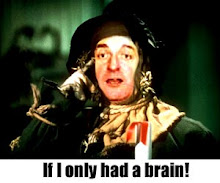Del Toro never loses his way in "Pan's Labyrinth"
It is a tribute to del Toro that after all my anticipation, "Pan's Labyrinth" didn't disappoint. Let's just stand back and look at his filmography for a moment:
Laberinto del Fauno, El (2006)
... aka Pan's Labyrinth (USA)
Hellboy (2004)
Blade II (2002)
Espinazo del diablo, El (2001)
... aka The Devil's Backbone (Europe: English title) (USA)
Mimic (1997)
Cronos (1993)
What jumps out for me is that it is his Spanish language films that consistently approach greatness. "Mimic", "Blade 2" and even the darling of many, "Hellboy", are poor at worst, mediocre at best. But look at "Cronos", "The Devil's Backbone" and now "Pan's Labyrinth". Each one is a politically aware, magical foray into strange and tortured worlds. I still marvel that it has taken a Mexican to create two of the most authentic explorations of the Spanish Civil War. Ken Loach's "Land and Freedom" was powerful, but more of an exploration of the failure of European Socialism than of the Spanish experience. "The Devil's Backbone" in contrast used fantasy to probe at the heart of the Spanish nightmare. "Pan's Labyrinth" continues this experiment and in the process becomes a portrait and indeed a celebration of the Spanish nation and its culture. Brutal and lyrical by turns, it uses its "fairytale for adults" label like a razor, exposing the real price of Spanish Fascism.
At the heart of this movie we have a battle for Spain's future played against the backdrop of a rich and honourable past, one that is being sacrificed blindly. Of course, the innocents, as represented by Ofelia, are the chief victims of this madness. Motifs common to most of Del Toro's work appear again here; grotesque creatures, strange insects, violent men, put-upon orphans and an ever present Underworld of which we are largely ignorant. However, these elements are integral to the story and one comes away feeling that this is what Del Toro has been working towards all these years.
A criticism that might be levelled at the film might be the black and white nature of the opponents, the Fascists being unredeemably evil while the rebels are honourable and good. However, it is a fairytale for adults after all and the allegory is rich enough to sustain this polarisation. Ofelia herself offers a complexity of character that is refreshing. Another charge one might level is the extremity of some of the violence and gore. To that I might point out that fairytales have never been lacking in violence; I think it is in the Grimm Brothers' "The Juniper-tree" that a stepmother dismembers her son, cooks him up and serves him to be eaten by his father. Pleasant stories, fairytales.
Beautiful and disturbing, this is so far removed from Del Toro's Hollywood work as to beg the question why he works in America at all, though of course one can do nothing without money and he himself has professed to adopting the "one for them, one for me" rule. Thank God there is no way on earth the US could produce a remake of this.
"Pan's Labyrinth" stands alongside "Spirit of the Beehive" (another Spanish Civil War fairytale), "Germany Year Zero" and indeed Del Toro's own "The Devil's Backbone" as a superlative childhood vision of a world gone bad. Compare the success of this movie with the similar, but less impressive, "Tideland", and you will see that Del Toro is a true master of the macabre and a vocal poet of the childhood world.
Labels: Fantasy, Film, Guillermo Del Toro


0 Comments:
Post a Comment
<< Home